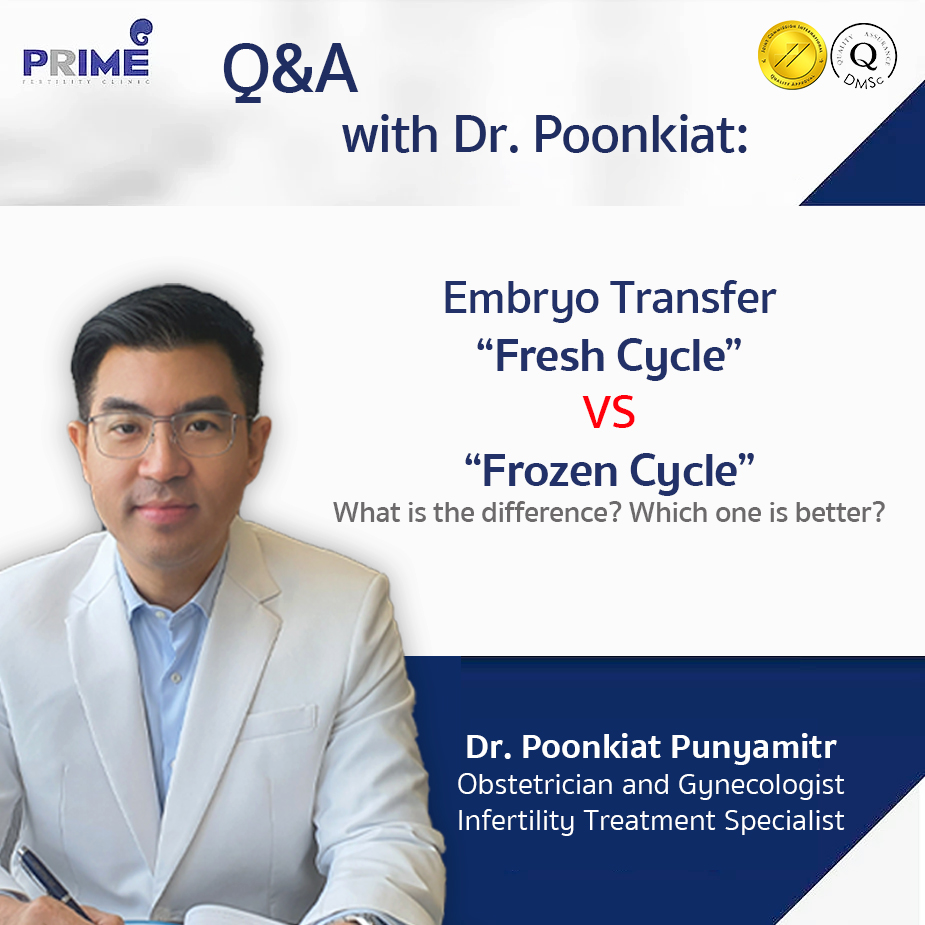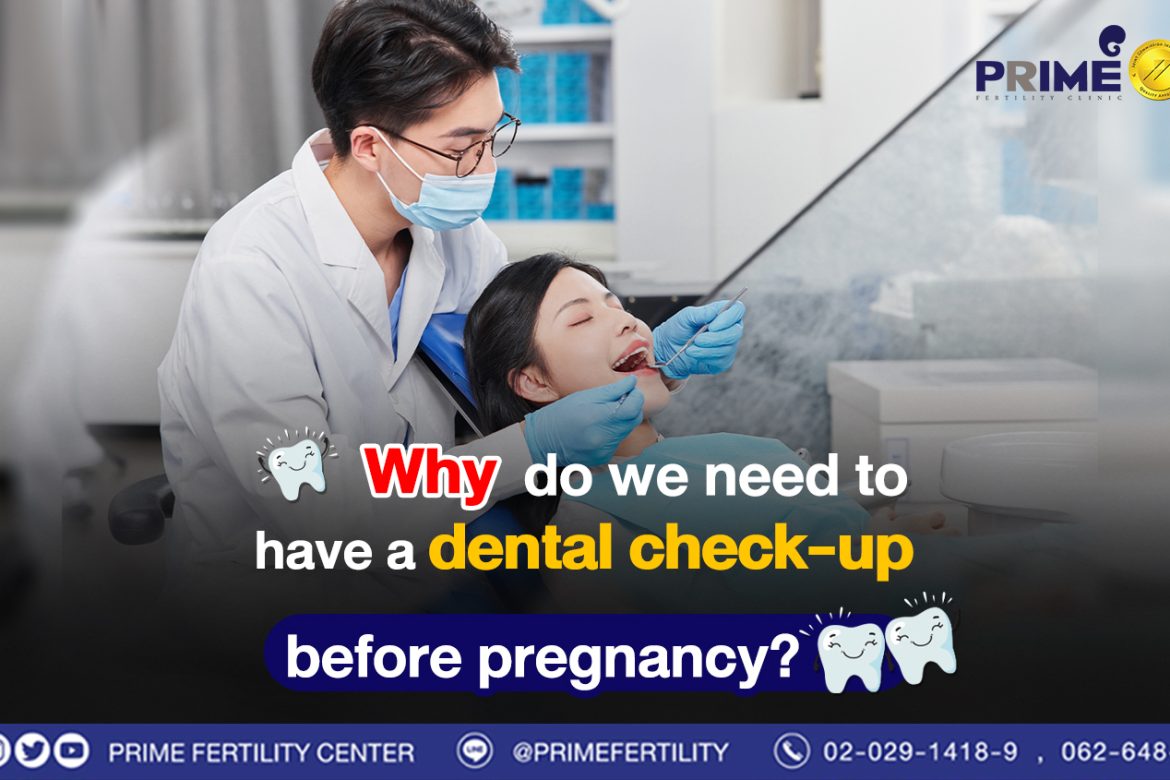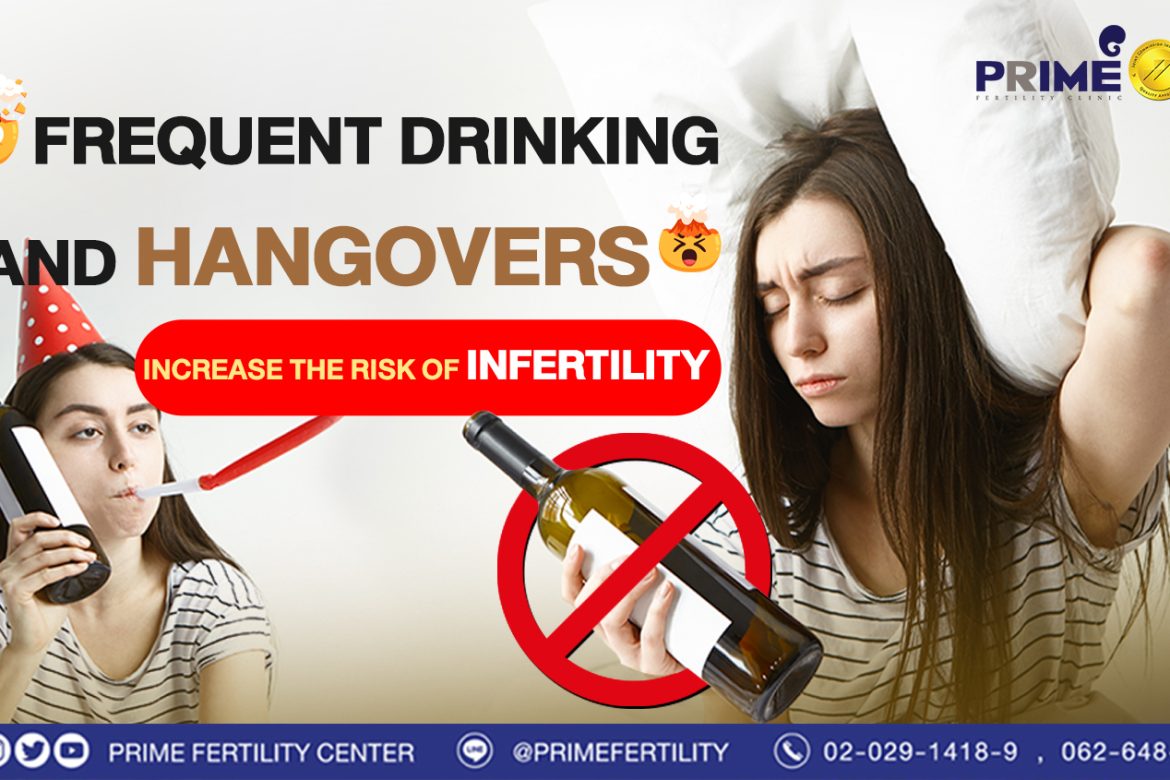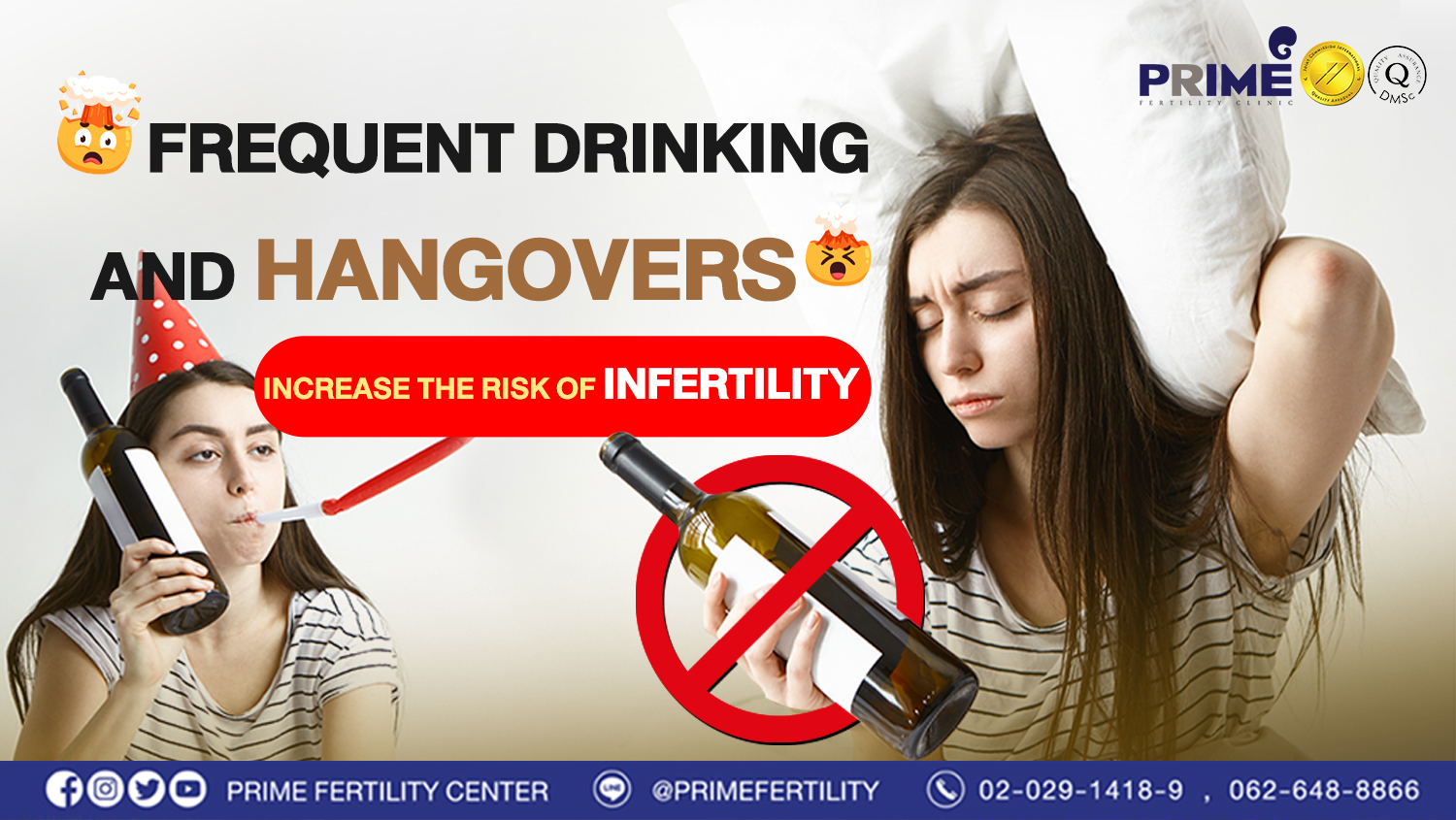For the embryo transfer, there are 2 options; fresh embryo transfer and frozen embryo transfer.

Fresh Embryo Transfer: This option will be proceeded during the cycle of ovarian stimulation and ovum retrieval. After the ovum retrieval and fertilization, the embryologist will do the embryo culture until the embryo is 2-3 days or developing to Blastocyst stage. If the embryo is well growing up maturely, the doctor will appoint the patient for embryo transfer later on.
Frozen Embryo Transfer: There is the preparation process on the endometrium and thawing out the frozen embryo before transferring to the uterine cavity.
Previously, the embryo transfer was done in the fresh cycle as the cryopreservation and thawing technologies were not reliable. Nowadays, the advance of many technologies makes the better result; we can obtain the embryo in the good quality after freezing and thawing. However, the success depends on how professional the infertility treatment center is. And the selected option will be considered with others factors as well.
For comparison, the benefit of fresh embryo transfer is saving the time and money from freezing and thawing. In the meantime, the frozen embryo transfer will have the higher success rate because the uterine cavity is well prepared while the patient’s uterus under the fresh cycle is stimulated until the endometrium becomes thick and unfavorable for the embryo implantation.
Moreover, the couple who need to screen the embryo qualification by Next-Generation Sequencing (NGS) method. The specialist will detect the chromosome’s abnormality from the placenta cell. Definitely, the healthy embryo will increase the pregnancy rate. Therefore, the frozen option is suitable for this purpose as the patient will be waiting for the NGS result to identify the perfect embryo to be transferred.
Currently, if there is no difficulty or any necessary issue. Frozen Embryo Transfer is more preferable as it will make the higher success rate.
At Prime Fertility Clinic, we will appoint the patient to do the blood test in order the check about the pregnancy hormone after 1 week of the embryo transfer. The patient will receive the result quickly, no need to be worried for a long time. And the blood test has more accuracy than the urine test via pregnancy test kit. That is showing the result after 2 weeks of pregnancy.
Dr. Poonkiat Punyamitr
Obstetrician & Gynecologist, Infertility Treatment Specialist at Prime Fertility Clinic
Reference: Prime Fertility Center Co., Ltd.
https://www.primefertilitycenter.com/en/qa-with-dr-poonkiat-embryo-transfer-fresh-cycle-vs-frozen-cycle-what-is-the-difference-which-one-is-better/
Getting to know Preparation for FET service

—–
Question about Infertility Treatment: Click Here
Review Clip from Our Patients: Click Here
#ICSI #IUI #IVF #eggfreezing #EmbryoFreezing #SpermFreezing #SemenAnalysis #Hysteroscopy #FET #PGT #PGD #NGS #PESA #TESA
#primefertilityclinic #primefertiltycenter #fertilityclinic #bangkokfertilityclinic #thailandfertilityclinic




